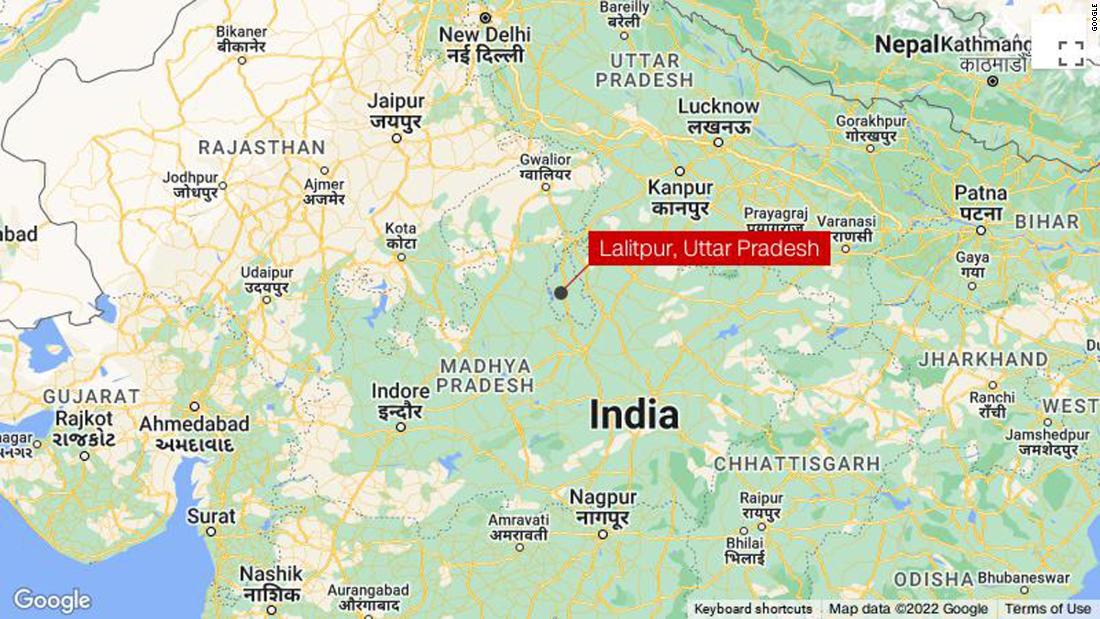
In a tweet on Wednesday, Priyanka Gandhi Vadra, a senior politician for India’s opposition Congress party, wrote: “If police stations are not safe for women, then where will they go to complain?”
An investigation into the alleged incident in a police station in the state’s Lalitpur district is ongoing. Following his arrest, the officer at the center of the allegation told reporters he was innocent and called for an independent probe. All officers on duty at the time of the alleged incident have been reprimanded, and action will be taken against them if found guilty of any crime, according to police.
Separately, four men have been arrested for allegedly kidnapping and raping the minor in April, according to police. They had allegedly taken the girl to the neighboring state of Madhya Pradesh, where she was raped and kept for four days, police said. A woman has also been arrested in connection with the alleged incident, police said.
They have also been accused of breaking India’s laws in place to protect minority castes, police said. The five have not been formally charged.
The girl belonged to India’s Dalit community, additional superintendent of Lalitpur police, Girijesh Kumar, told CNN on Thursday. The accused police officer was also a Dalit, Kumar said.
The alleged incident is the latest in a series of high-profile crimes against women and minority groups across India, epitomizing what critics allege is widespread internalized misogyny and support for patriarchal values.
According to the latest figures from India’s National Crime Records Bureau, more than 28,000 cases of alleged sexual assault against minors were reported in 2020. But activists believe the real figure is much higher, as in other countries, rape is often underreported.
In a statement Wednesday, India’s National Human Rights Commission (NHRC) described this month’s alleged incident as a “human rights violation.”
Caste-based violence against women and girls
India’s 2,000-year-old caste system categorizes Hindus at birth, defining their status in society, what jobs they can do and who they can marry.
It was officially abolished in 1950, but the social hierarchy still exists in many parts of the Hindu-majority nation.
Dalits account for about 201 million of India’s 1.3 billion population, according to government figures. They have been referred to as “untouchables” in the past and continue to experience rampant discrimination, sexual violence and assault.
A litany of violent crimes and sex attacks against Dalit women and girls have caused outrage in recent years.
In August last year, four men, including a Hindu priest, were charged with the rape and murder of a 9-year-old Dalit girl in the Indian capital of Delhi.
Activists and opposition politicians say the crimes reflect an atmosphere of hate, fueled in part by a rise in hardline Hindu nationalism.
Their investigation found that Dalit women and girls in the northern state of Haryana are often denied access to justice in cases of sexual violence due to the “prevalent culture of impunity, particularly when the perpetrators are from a dominant caste.”
The organization called on the government to ensure increased police accountability and effective law enforcement to protect caste-based minorities.
In March 2020, then junior member of the Ministry of Home Affairs, G. Kishan Reddy, said in a written response to parliament that the government was “committed to ensure protection” of those in marginalized castes. He added that laws had been amended in 2015 to strengthen both preventative and punitive measures for crimes against Dalits.

